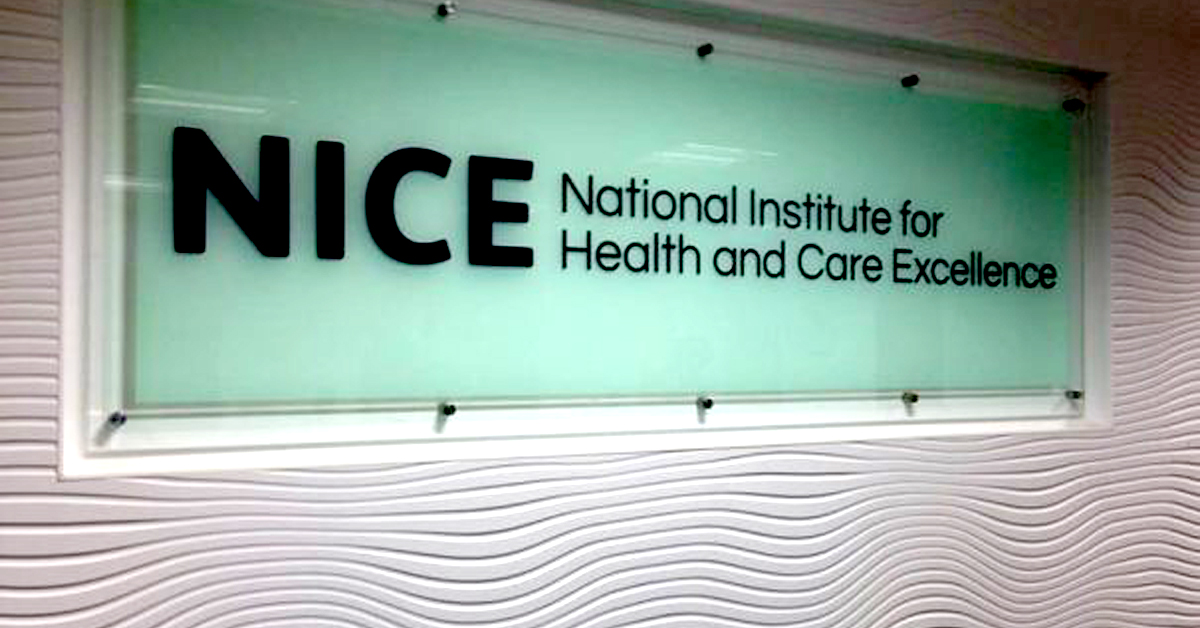This week’s Innovation Partners BioBlog focuses on oncology updates. NICE backs funding for Roche’s lung cancer drug, Rozlytrek, after the company offers discounts. New personalized oncology treatments may be available based on patients’ genetic profiles thanks to a partnership between MD Anderson and Philips. More stories in this week’s Innovation Partners BioBlog.

NICE backs funding for Roche’s lung cancer drug after price cut
The National Institute for Healthcare Excellence (NICE) has recommended NHS funding for Roche’s lung cancer drug, Rozlytrek (entrectinib). Rozlytrek is recommended for ROS-1 positive, advanced non-small cell lung cancer for patients not previously treated with an ROS1 inhibitor. NICE rejected Rozlytrek earlier this year due to cost considerations, stating the price was too high. Roche then offered a commercially confidential discount on the drug’s list price of £5,160 for 30 days’ supply, prompting NICE to reconsider it. ROS1 is a rare mutation found in fewer than 2% of NSCLC cases.There are few treatments for ROS1-positive NSCLC, especially for people whose lung cancer has spread to the brain.
READ MORE
DEAYA and GSK Announce a Broad Partnership in Synthetic Lethality, an Emerging Field in Precision Medicine Oncology
DEAYA Biosciences, Inc. and GlaxoSmithKline announce a strategic partnership in Synthetic Lethality, an emerging field in oncology. The strategic partnership includes IDEAYA’s Synthetic Lethality programs MAT2A, Pol Theta, and Werner Helicase programs, which are projected to reach clinical trials within the next three years. IDEAYA has solved the crystal structures for each of its MAT2A, Pol Theta and Werner Helicase programs, enabling structure-based drug design, and has demonstrated in vivo proof of concept in relevant animal models for its MAT2A and Pol Theta programs. Synthetic Lethality is one of four core research focus areas for GSK in oncology.
READ MORE
New Program Offers Cancer Patients Financial Assistance with Household Expenses
A new program is offering $500 to cancer patients to offset the disruptions caused by the COVID-19 pandemic. The Community Oncology Alliance (OCA) and CancerCare have formed the COA/CancerCare Patient Financial Assistance Fund. The fund offers grants to qualified patients to help them pay their rent, mortgage, and utilities, or purchase food and general household supplies. Other programs are available from CancerCare, including psychosocial support, educational workshops, support groups, and additional financial assistance for expenses such as pet care.
READ MORE
Hospital, physician spending in April reaches lowest point in more than a decade: analysis
An analysis conducted by Altarum, a consulting firm, indicates that hospital and physician spending in April 2020 is at its lowest point in over a decade. National health spending was $2.88 trillion in April, 24% lower than in April 2019. Health spending as part of GDP fell 15.7% in April. The data suggests that health spending as part of GDP is falling faster than the overall economy. Hospital care spending was $746 billion in April, a sharp decline from $1.25 trillion in April 2019. Hospitals cancelled elective procedures starting in March to prepare for COVID-19 patients, which is the likely cause of the drop in revenues.
READ MORE
Senators call for permanent changes to expand telehealth access post-pandemic
A group of 30 senators, led by Senator Brian Schatz (D-Hawaii) sent a joint letter to Senate majority leader Mitch McConnel (R-Kentucky) urging continued support and extension of telehealth services and as a permanent option for Medicare recipients. Telehealth use has skyrocketed during the pandemic, and many patients are finding it a helpful option to in-person doctor visits. Last week, Senators Martha McSally, R-Arizona, and Doug Jones, D-Alabama, introduced bipartisan legislation to make $50 million available for a Virtual Health Pilot administered to support remote patient monitoring programs in community health centers rural health clinics during the pandemic.
READ MORE
MD Anderson and Philips collaborate to facilitate personalized oncology treatments and clinical trial matching based on genomic markers
The University of Texas MD Anderson Cancer Center and Royal Philips today announced a collaboration to provide oncologists with evidence-based therapy and clinical trial guidance through Philips’ oncology informatics solutions and MD Anderson’s Precision Oncology Decision Support (PODS) system. The collaboration will enable physicians to personalize care based on a patient’s individual genetic profile. The PODS system provides clinical information, including approved therapies and available clinical trials, based upon genetic alterations within the tumor. Clinicians receive a unified view of therapies and clinical trials in the context of their patient’s unique tumor, helping them make an evidence-based decision for their patient’s treatment.
READ MORE



